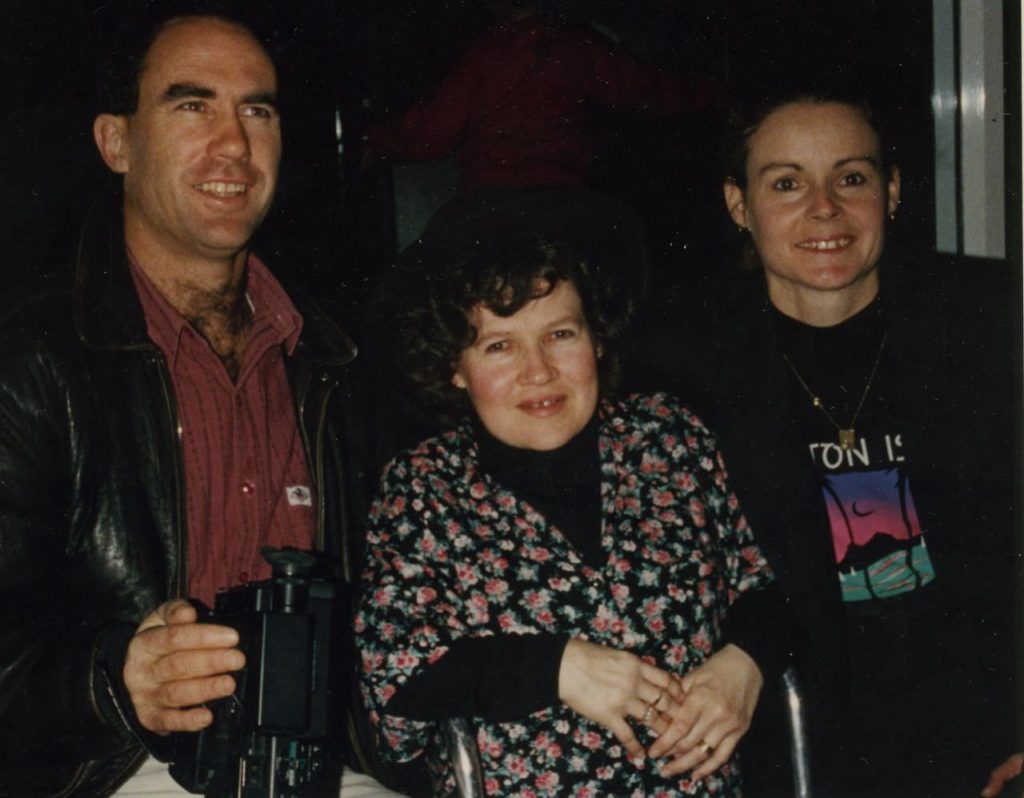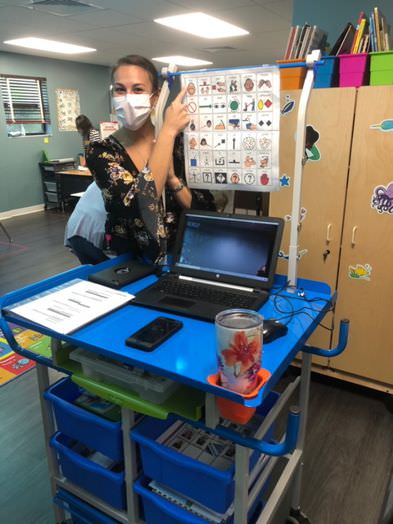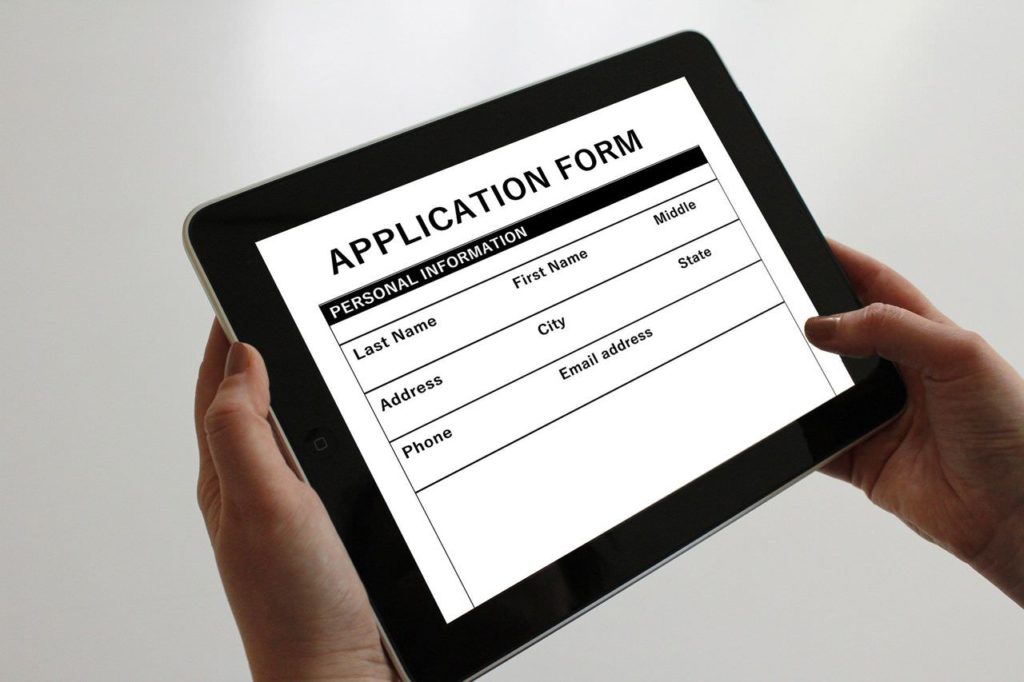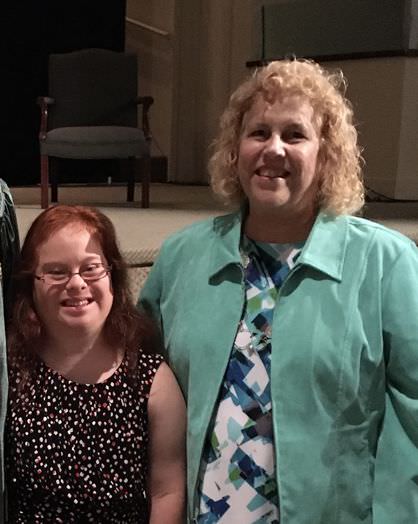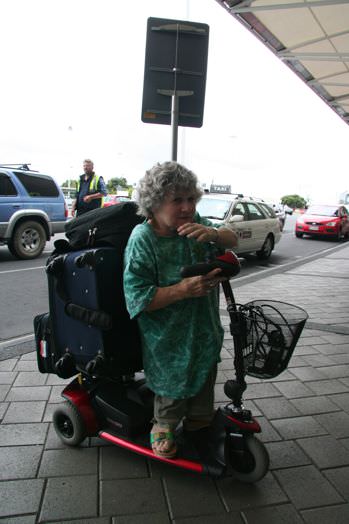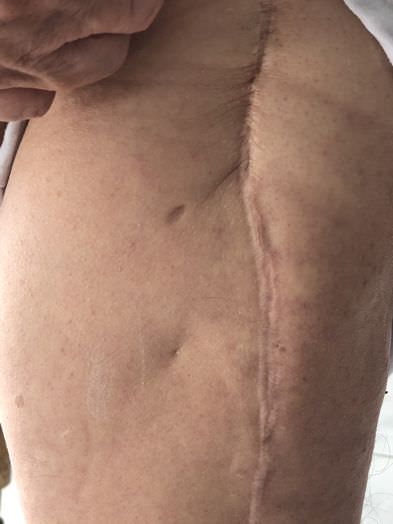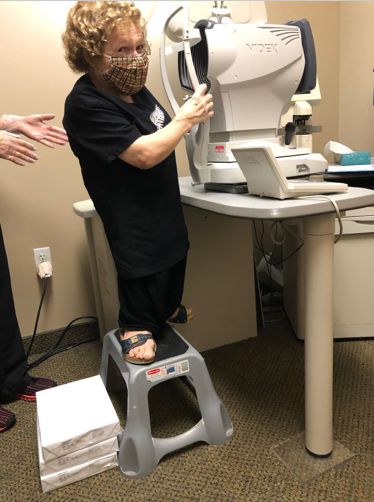
In 2020, I had eye surgeries to remove cataracts, implant intraocular lenses, and remove scar tissue that developed behind each implant. I enjoyed throwing out my old contact lenses and donating my eye glasses to charity. But the inaccessible medical equipment challenged my independence.
After 45 years of regular eye doctor visits, I was accustomed to being unable to reach ophthalmic diagnostic equipment. Typically, I gained the extra inches needed by stepping up onto a phone book. However, this simple solution was unavailable during my 12 pre- and post-op visits. Besides, who has phone books anymore?
Want to subscribe to receive blog updates sign up today!
I rejected the step stool staff offered explaining that my knees don’t bend and I couldn’t step onto it. Not ready to give up my independence, I also vetoed staff lifting me onto the stool. I chose to stand on reams of copy paper to gain additional height. Success. What I didn’t know was that we weren’t done.
Next was the cornea scanner. But copy paper wasn’t enough to elevate me to this machine and there was no escaping a stool. Yet I still insisted on accessing the equipment without being lifted. Fearing my fall, staff hovered close by as I used reams of copy paper to create a small step next to the stool and from there swing my leg up onto the stool. Independence maintained.
A couple of months later, I was challenged by an Ophthalmic Yag Laser System at the outpatient surgery center. The equipment accomplished two things: removing the unwanted membrane behind my lens implants and infringing on my independent access. None of my prior strategies got me high enough. I had no choice but to allow the surgeon to lift me onto a chair. But before doing so, I checked if he had a back problem and disclosed my weight. He assured me that he lifted weights way heavier than me in the gym.
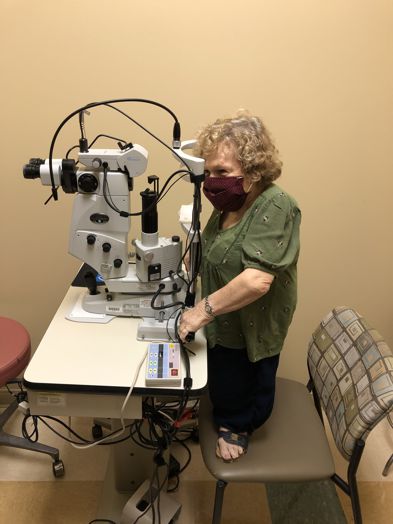
After the procedure, I kicked into advocacy mode. Not everyone has a surgeon who can lift weights heavier than their patients. And what about wheelchair users who can’t stand on the floor let alone a chair? Because the surgeon has a financial interest in the surgery center, I put him on notice that I would be calling on him in the future to be pro-active in ordering accessible medical equipment. Documentation with photos, laid the groundwork for my communication with the manufacturer.
I later learned that the Architectural and Transportation Barriers Compliance Board had issued technical criteria for medical diagnostic equipment (MDE) to be accessible to, and independently usable by, patients with disabilities, to the maximum extent possible. Although the MDE Appendix to 36 CFR Part 1195 has been effective since February 8, 2017, it cannot be enforced because authorities like the United States Departments of Justice (DOJ) and Health and Human Services (HHS) have not adopted the MDE Standards as mandatory requirements for entities subject to their jurisdiction.
Does anyone hear the call to advocate for making accessible MDE mandatory? What’s your experience with MDE?
For additional reading, see Standards for Accessible MDE. A Rule by the Access Board January 9, 2017, accessed on April 15, 2021. https://www.federalregister.gov/documents/2017/01/09/2016-31186/standards-for-accessible-medical-diagnostic-equipment and “Access To Medical Care For Individuals With Mobility Disabilities.” United States DOJ and HHS 2010, accessed on April 15, 2021. https://www.ada.gov/medcare_mobility_ta/medcare_ta.htm.

